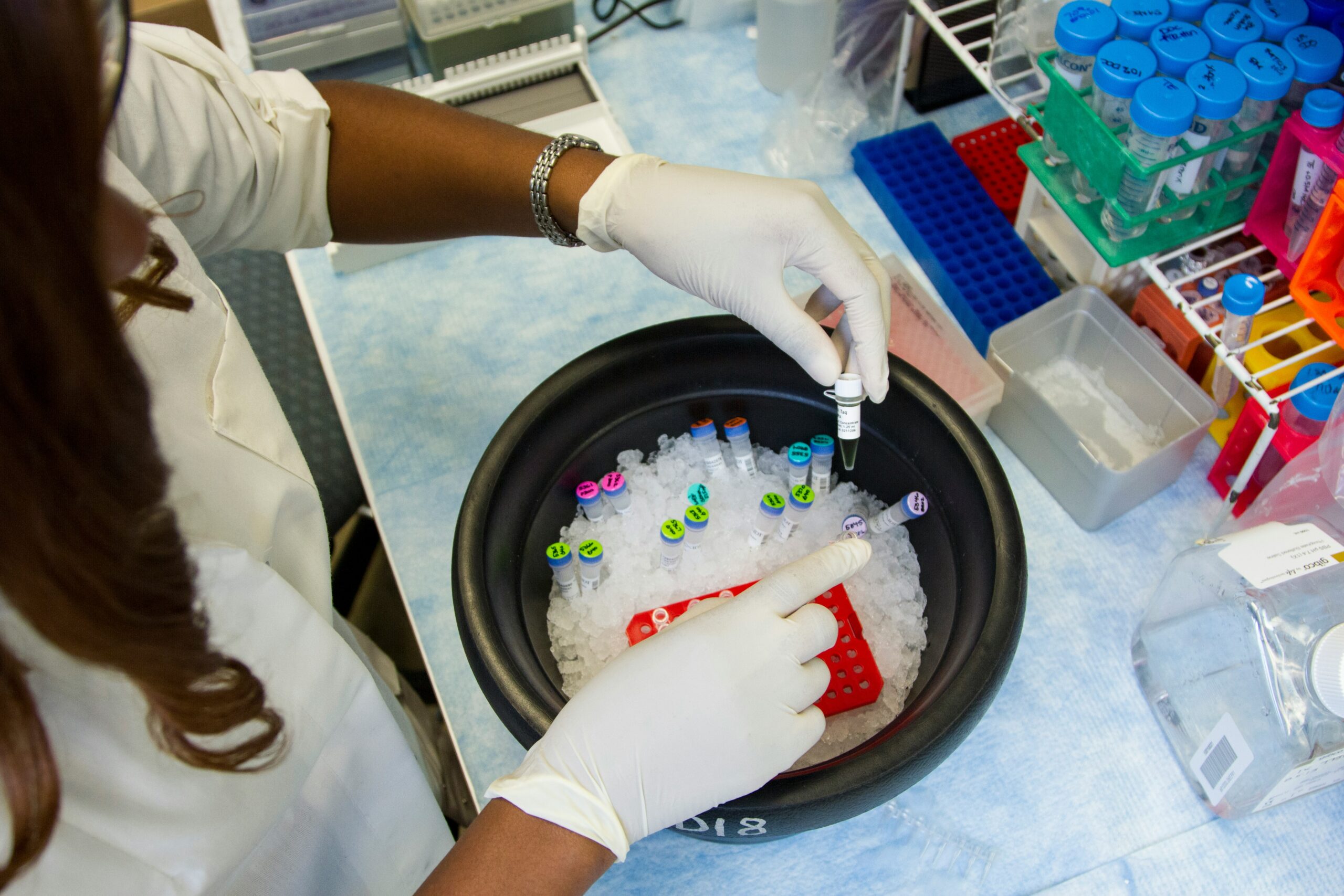Research is defined as a focused, systematic study and investigation, inclusive to refer to scholarly, empirical, creative, critical, and/or scholarly fields, which expand, clarify, reorganise, or develop knowledge or artistic perception. Research may be basic or applied.

Essence of Human Subject Research
The Essence of Human Subject research includes the following:
- Testing and developing new treatments to combat diseases;
- Study diseases; and
- Formulating public health safety issues for the well-being of humans
Categories of Human Research
The categories of human research include:
- Use of patients for clinical trials of new drugs;
- Healthy human participant volunteers for clinical trials of new drugs & devices;
- Use of tissues, blood, and X-rays;
- Aggregate data and patient charts; and
- Use of Genetic interventions on non-human species.
Ethics in Research
Research ethics specifically deal with the application of moral rules and professional codes of conduct to the collection, collation,
Ethical and Legal Issues in Clinical and Social Research analysis, reporting, and dissemination of information about research subjects, whether individually or as a group, especially as regards acceptance of subjects’ right to privacy, confidentiality, and informed consent.
Evolution of Research Ethics
Abuse has created a public perception that researchers cannot be trusted with the safety of research participants.
Examples are the Nazi experiments that occurred between 1930 and 1945, the Tuskegee syphilis experiments in 1932, the Jewish Cancer experiments in 1963 and the Pfizer Drug Trials in Kano in 1996 with lasting effects to date.
Therefore, it is important to note that the increasing generation of unconscious data undermines the integrity of the scientific community, and as a result, there is a need to develop rules to guide the conduct of research.
Nazi Experiments
The Nazi experiments occurred between 1930 and 194,5, whereby Nazi Soldiers and scientists performed very gruesome experiments.
These were experiments exploring the effects of extreme cold, high altitude, exposure to poisons, and infections with diseases on Jewish World War victims. At the end of the war, on August 20,1947,23Nazis were tried.
Sixteen of them were found guilty. Seven were hanged and 9 were jailed. In 1996, Pfizer conducted drug trials in Kano.
Trov, an antibiotic, was tested on 100 children during a meningitis epidemic. Eleven(11)children died in the trial, while some became brain-damaged, paralysed and deaf.
Ethical Issues in the Pfizer-Trovan trial
- There was no approval because the letter was backdated
- Never been tested in children before Kano
- Treatment at a lower dose than recommended
- Advantages of the chaos of meningitis, cholera, and measles
- Freedom to refuse & availability of a safe alternative at the same site, free by Doctors without Borders
- Contravening the Nuremberg Code of 1947, the Declaration of Helsinki must explain
- Purpose, risks, method, and voluntary consent are inadequate
Why is there a need for Ethics in Research in developing countries?
- The need for developing countries to participate in research
- Need to protect individuals in developing countries from unnecessary harm resulting from participating in studies
- The need to enjoy the benefits of research results: Justice
Why Should Social Science Research be different or peculiar?
- Usually, they are community-based and are often not people-initiated.
- They are not often used for therapeutic purposes.
- They are often not appreciated by the majority of non-social science researchers.
- The dangers of social science research are easily overlooked.
The results have the potential for over-generalisation. Medical or therapeutic (research) activities provide diagnosis and preventive treatment/therapy to particular individuals or groups of people. However, you could have a situation where therapy is combined with research.
Why may Clinical Research be different or peculiar?
- Involves more of a one-on-one relationship
- May be tied to life-saving (or otherwise) intervention
- Maybe the only source of help for them, especially in developed countries
- ‘Undue’/un-equal power between the players is more in force
- The effect of the intervention may not be immediately obvious
Ethical and Legal Issues in Clinical and Social Research
Genetic/Molecular medicine/science is a branch of medicine/research:
- Strides across every known and existing specialisation/unit;
- Uses findings at the molecular level to achieve goals in other areas;
- Findings can be easily extrapolated larger01group/species/community;
- Useable for good and evil purposes;
- Potentiality of being over-sensationalised, even though it is at the infancy stage;
- Heavily funded, researchers have a free hand with finances, and
- It is curative, preventive, diagnostic and predictive.
Why may Molecular/Genetic Research be different or peculiar?
- Extremely precise with diagnostic ability but less so with practical applicability. However, this will improve techniques and methodologies to improve.
- More like a time bomb concerning the effects
- Not easily available in developing countries
- Access could depend on what ‘funders’ would sponsor and not what the people need.d
Results can easily be transferred/interpreted to those far removed from the samples, e.g., stigmatising individual communities and tribes. For example, samples from Yorubas in New York could be used for targeting Yorubas worldwide.
Law and Ethics
Law and morality (ethics) are NOT the same, BUT they have a relationship. Questions to be considered include the following:
- Can you give the relationship between law and morals?
- Does a law that falls short of ethics and morality remain law, or does the fact that it falls short of ethical standards remove the status of law from it?
- What is the Legal status of each of the various instruments?
- Do they have the force of law?
- Should ethical conduct be made legally mandatory?
- What about sampling subpopulations within the midst of New York, representing Yorubaworldwide, if we refuse to cooperate?
Problems of Law and Ethics
- Different individual value systems
- An undeveloped legal system
- Underdevelopment
- Mass illiteracy
- Lack of awareness of human rights
As a Researcher, what factors should guide me?
- Research should not violate international and human laws and principles
- The right to life
- The right to the dignity of the human person
- The principle of non-intervention
- Genocide and other international crimes are prohibited
- Biodiversity Convention
- Should positively impact humankind and preferably the developing world, Africa, and Nigeria
The International Regulations of Research include
- Human rights law: the UDHR, Covenant on Civil and Political Rights, Covenant on Economic, Social and Cultural Rights
- Bioethics Declarations and Conventions (United Nations/Specialised Agencies/ Regional Bodies)
- Ethical and Legal Issues in Clinical and Social Research
- UNESCO Universal Declaration on Bioethics and Human Rights
- 1964 Helsinki Declaration as amended
Facts about Research in Africa
- It is harder to do research in Africa than in other developed countries.
- Research is never value-neutral.
- He who pays the piper dictates the tune.
- The bulk of research is undertaken in developed countries and is on their areas of concern.
- Research is undervalued in African countries and not just because of money.
New challenges in Research include:
- Information technology (Computerised records, Internet, intranets
- Commercialisation of research
- Globalization
- Trans-border issues
- Subpoenas and science
- Who should develop our facilities?
- Can we adequately store and analyse what we have?
Worldwide Legal reforms in Research are concerned with new and revised constitutions, explicit privacy provisions and some specific provisions for human subjects research and health care issues. New and revised health codes with privacy and confidentiality, biomedical research and Ethics committees. You can read more similar posts on our research page of the site.
The Way Forward for Africa
- Africa should carve a niche and prioritise an effective research agenda, and research findings must be patented.
- Cost sharing by home institutions, governments and external funding should be improved.
- Basic standard of care should be improved, nd placebo use is essential.
- We should motivate our involvement in new technologies and the global market.
- We should improve community participation in research prioritizing.
- The African continent should address benefit sharing with foreign partners and consent issues with the African community.
- Capacity building must be mandatory in all research projects in Africa.
- The relationship between ethics (what should be done or avoided)and law regulations (what must be done or avoided) must be strengthened.
- Research findings have been patented.
Emerging Issues
The emerging issues in clinical and social research ethics include the following:
- Who owns whatever accrues from the research: the participants, sponsors, researchers or publishers
- What of likely/unlikely stigmatisation or discrimination, what if some inherited (polymorphisms) are linked with some diseases like HIV or traits like alcoholism?
- How would family members or communities be protected from ensuing discrimination?
- What use will pharmacogenetics be to the teeming millions of preventable disease-ridden and hungry Africans?
- Are there any disadvantages in not tagging along with the rest of the world?










